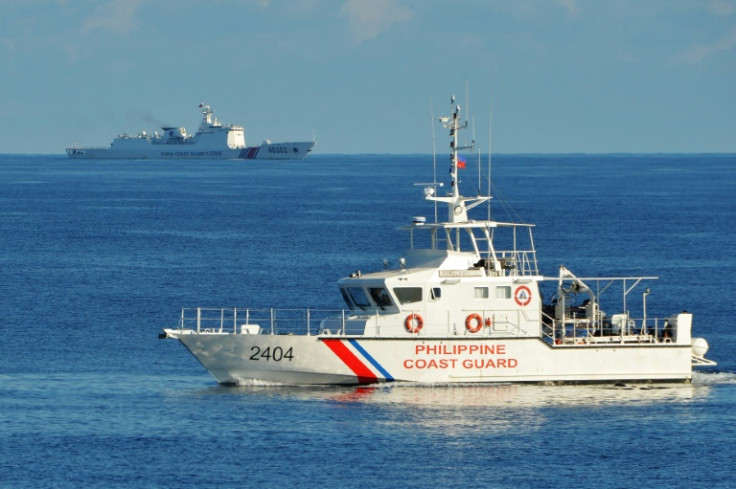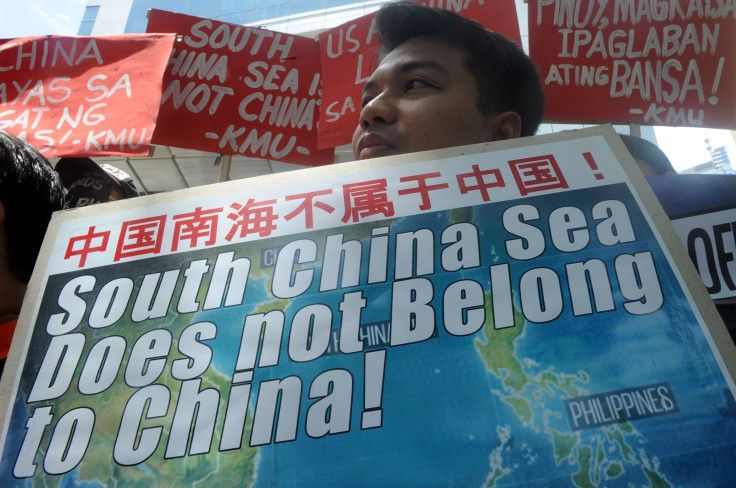China 'Harrassment' In South China Sea A 'Daily Situation' For Philippines: Foreign Secretary

KEY POINTS
- Philippines' top diplomat told the Munich conference they experience "daily" Chinese harassment
- Philippine Foreign Affairs Sec. Manalo urged other countries to support their rights in the South China Sea
- Philippine President Marcos summoned the Chinese Ambassador over the laser-pointing incident
The Philippines' top diplomat revealed during his remarks at the Munich Security Conference that Chinese harassment in the heavily contested South China Sea has become a "daily occurrence."
Philippine Foreign Affairs Sec. Enrique Manalo said the increasing number of Chinese harassment against Filipino vessels "deprived" his country of using its exclusive economic zone.
"On a day-to-day basis, there are still many events occurring in the South China Sea, and there are daily incidents – at least as far as we see it – cases of harassment or land reclamation, which, in many cases, have been depriving the Philippines of the use of our exclusive economic zone," Manalo said, Philippine online news outlet Rappler reported.
"That is more or less the daily situation that we face," he added.
Manalo urged the international community to support Southeast Asian countries, including the Philippines, in asserting their rights and maintaining a rules-based order in the South China Sea.
The Philippine foreign policy chief's remarks in Munich came amid the latest incident involving the two countries after China allegedly pointed military-grade lasers at a Philippine naval ship which caused temporary blindness to its Filipino crew.
According to the Philippine Coast Guard, a Chinese Coast Guard ship pointed laser beams at BRP Malapascua during its resupply mission to Filipino troops at the Second Thomas Shoal, widely known as Ayungin Shoal in the Philippines.
The Philippines also accused the Chinese naval ship of making "dangerous maneuvers" by going near their naval ship.
The Southeast Asian country condemned the incident by calling it a "blatant disregard" of their sovereign rights in the part of the South China Sea, which they called the West Philippine Sea.
After learning about the incident, Philippine President Ferdinand Marcos Jr. summoned Chinese Ambassador Huang Xilian to express his "serious concern" over China's actions.
According to the Philippine presidential office, Marcos told Huang his concern "over the increasing frequency and intensity of actions by China" against Philippine vessels and Filipino fishermen.
In response, Huang said he and Marcos "exchanged views" on implementing the consensus reached by the Philippine President and Chinese President Xi Jinping and promoting dialogue and communication to prevent similar incidents in the future.
The U.S. sided with the Philippines, its close ally in the region, and accused China of "provocative and unsafe" behavior.
The U.S. also reiterated its commitment to defend the Philippines against an armed attack in the South China Sea through the 1951 Mutual Defense Treaty.
For decades, China and the Philippines have been disputing the issue of the South China Sea.
A decade ago, the Philippines lodged a complaint at an international arbitral tribunal in The Hague, accusing China of violating the United Nations Convention on the Law of the Sea (UNCLOS).
Despite China's refusal to participate in the proceedings, the tribunal unanimously ruled in favor of the Philippines in 2016, invalidating Beijing's "nine-dash line" and recognizing Manila's sovereign rights in the South China Sea.

© Copyright IBTimes 2024. All rights reserved.






















